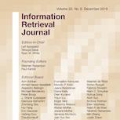Compiler pass selection and phase ordering present a significant challenge in achieving optimal program performance, particularly for objectives like code size reduction. Standard compiler heuristics offer general applicability but often yield suboptimal, program-specific results due to their one-size-fits-all nature. While iterative compilation can find tailored solutions, its prohibitive search cost limits practical use. Machine learning approaches promise faster inference but frequently struggle with generalization to unseen programs. This paper introduces GRACE, a novel framework for compiler auto-tuning, demonstrated for LLVM IR instruction count optimization. GRACE effectively curtails the search space by leveraging pass synergies and a weighted scoring method to generate initial high-quality candidate sequences and a pass pool. It then employs contrastive learning, using pass sequence-based data augmentation, to create program embeddings that facilitate similarity-aware clustering. Evolutionary search within these clusters yields a coreset of $k$ specialized pass sequences designed for robust generalization to unseen programs. At test time, GRACE efficiently selects the best coreset sequence and refines it using lightweight techniques. Experimental results on seven diverse datasets show that GRACE reduces LLVM IR instruction count by an average of 10.09% on LLVM 10.0.0 and 10.19% on LLVM 18.1.6 compared to opt -Oz, while incurring an average tuning time of less than 1s per program, demonstrating its state-of-the-art performance and practical effectiveness.
翻译:暂无翻译



